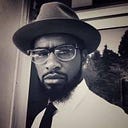Member-only story
Malcolm X: The Black Messiah
By Ameer Hasan Loggins
“I now introduce to you, a man that would give his life for his people,” Benjamin 2X told the crowd in the Audubon Ballroom. That would be the last time 2X would have the honor to make such an introduction. Because on that day, February 21, 1965, in front of close to 500 people, including his pregnant wife and children, Malcolm X was shot 15 times.
On Saturday morning, February 27, 1965, in Harlem, New York, El-Hajj Malik El-Shabazz was laid to rest. The public viewing of his body was attended by up to 30,000 mourners. Another 3,000 people made the pilgrimage to pay their respects at the Faith Temple Church of God to their “shining Black prince.”
J. Edgar Hoover and the Federal Bureau of Investigation wanted to “neutralize,” a “true Black revolution” in the United States. By any means necessary, they were hellishly bent on preventing “the rise of a” Black “messiah.” Hoover and the FBI identified Malcolm X as the one who, “might have been such a ‘messiah.’”
James Baldwin said, when Malcolm talked, he articulated the long-denied pain and suffering for all of the Black people in the United States. That Malcolm corroborated the reality of Black folks, and by doing so, he affirmed that, “they really exist.”
